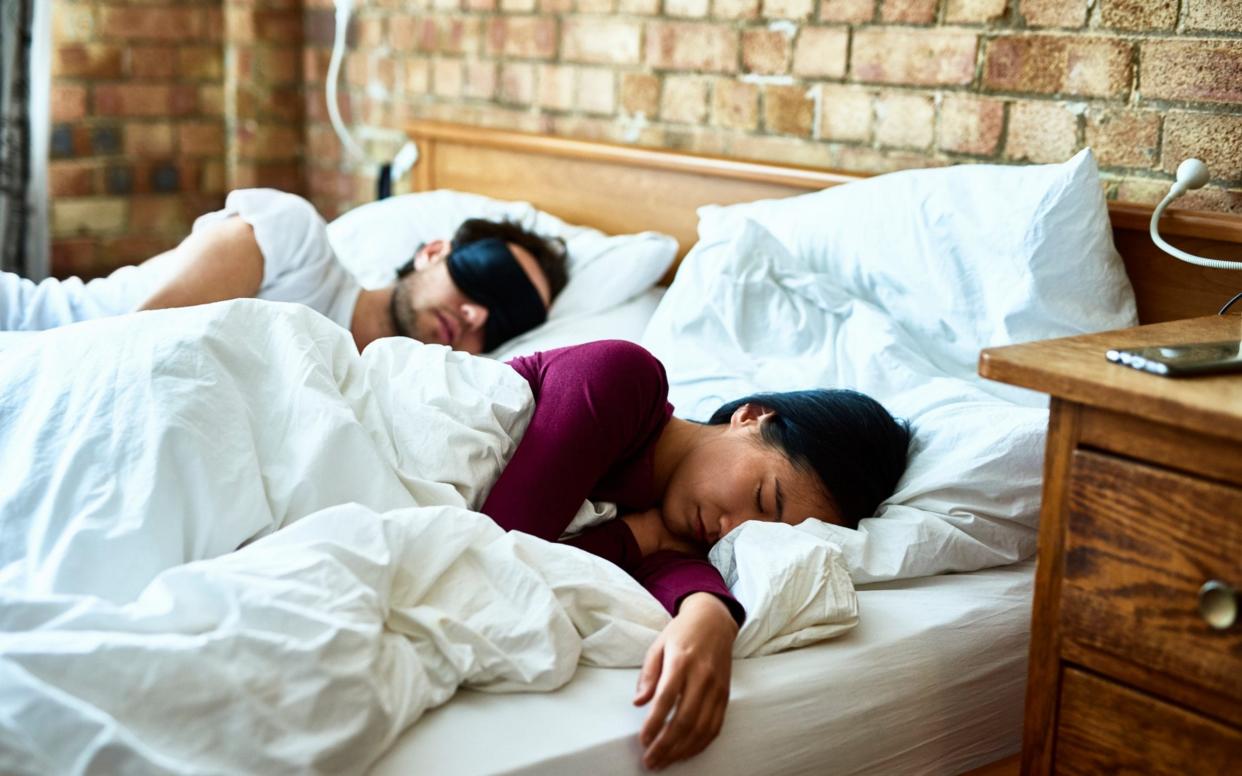Sleeping nine hours a night could raise stroke risk by a quarter

Sleeping for more than nine hours per night could increase the risk of a stroke by a quarter, research suggests.
The research, published in the journal Neurology, involved more than 30,000 people with an average age of 62.
Scientists found that people who sleep nine or more hours per night are 23 per cent more likely to suffer the life-threatening medical condition than those who sleep less than eight hours per night.
Those who took a regular midday nap lasting more than 90 minutes were 25 per cent more likely to later suffer a stroke than people who took a regular nap lasting from up to an hour or no nap at all.
Participants did not have a history of stroke or other major health problems at the start of the study.
Study author Dr Xiaomin Zhang said: "More research is needed to understand how taking long naps and sleeping longer hours at night may be tied to an increased risk of stroke.
"But previous studies have shown that long nappers and sleepers have unfavourable changes in their cholesterol levels and increased waist circumferences, both of which are risk factors for stroke.
"In addition, long napping and sleeping may suggest an overall inactive lifestyle, which is also related to increased risk of stroke."
The research did not prove that sleeping more caused an increased risk of stroke.
It may have been that those who tended to sleep more did so because of health problems, explaining their higher stroke risk.
Study participants were followed for an average of six years, during which time there were 1,557 stroke cases.
Barbara Kobson, senior cardiac nurse at the British Heart Foundation, said: “We know how long and well we sleep can have an effect on our heart and circulatory health. This study suggests that sleeping for a longer time, getting sleep of poor quality, or taking long midday naps could be associated with an increased risk of stroke.
“Although this is an interesting study it was carried out among middle-age and older Chinese adults, so we can’t be sure that these findings are relevant to people in the UK. Further research would therefore be needed to confirm the findings of this study.”
“The important message here is that if you are concerned about your sleep pattern, the length of time you spend sleeping during the day, or are worried about the quality of your sleep, it would be worth speaking to your GP.”
The participants were questioned about their sleep and napping habits.
Eight per cent of the people took naps lasting more than 90 minutes, while 24 per cent said they slept nine or more hours per night.
The results were all adjusted for other factors that could affect the risk of stroke, including high blood pressure, diabetes and smoking.
Among those sleeping at least nine hours a night, or having a 90 minute nap in the day, one per cent of cases per person-years later had a stroke.
This compared to 0.7 per cent of those sleeping for seven to eight hours a night, or having no nap, or a short nap in the day.

Georgina Hill, from the Stroke Association said: "We know that healthier people have less risk of stroke and that sleep is an important part of a healthy life but there’s not enough evidence yet to suggest a direct link between sleeping patterns and stroke risk.
"Rather than worrying about the time your alarm clock is set, it’s best to focus on other things that can keep your chances of having a stroke down. High blood pressure and atrial fibrillation are two killers that may not have obvious symptoms and there are millions of people walking around undiagnosed. Getting checked for these by your GP or local pharmacist is the best way to significantly reduce your risk of a deadly stroke."
Previous studies have suggested napping once or twice a week could be the secret to a healthy heart.
The Swiss research found those enjoying a small number of daytime naps a week were at nearly half the risk of life-threatening events such as heart attack or stroke.
Those who napped once or twice in seven days, for between roughly five and 60 minutes, were 48 per cent less likely to suffer a heart attack, stroke or heart failure compared to those who did not nap at all. However, the more frequently people napped beyond this level the more likely they were to suffer a serious heart event.
And US research suggests that a daily snooze may raise the risk of high blood pressure by up to a fifth.

 Yahoo News
Yahoo News 
